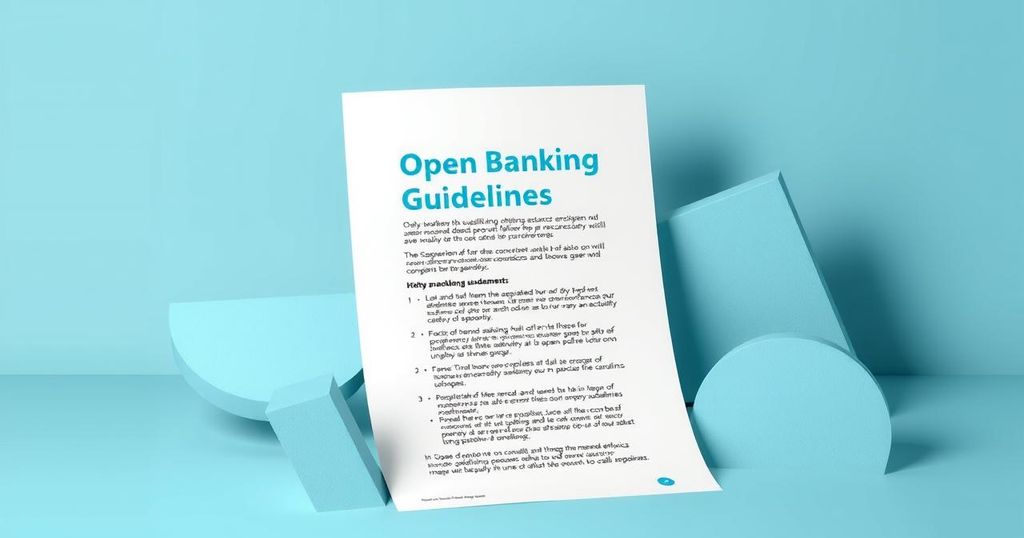Central Bank of Nigeria Unveils Open Banking Guidelines, Leading Africa in Reform

The Central Bank of Nigeria has issued operational guidelines for open banking, making Nigeria the first African nation to do so. These guidelines define how banks can share consumer data and aim to boost competition and access to financial services. Stakeholders must comply with these regulations, which were in development since June 2017, with a previous framework established in February 2021.
The Central Bank of Nigeria (CBN) has recently released operational guidelines aimed at regulating open banking in the nation. This initiative positions Nigeria as the first country in Africa to adopt open banking standards. The guidelines provide a framework for banks and other financial institutions to access and share consumer data, detailing the minimum requirements and responsibilities that participants must fulfill.
The CBN anticipates that these guidelines will enhance competition and broaden access to financial services and payment solutions for consumers in Nigeria. Musa Jimoh, the director of the payments system management department, emphasized the importance of fostering customer-permissioned data sharing between banks and third-party entities. This approach is expected to promote the development of innovative, customer-centric products and services.
Jimoh reiterated the necessity for all stakeholders to adhere strictly to these guidelines and existing regulations. He noted that the CBN will continue to monitor the implementation of open banking practices and provide further guidance when necessary. The foundational work on open banking began in June 2017, followed by the issuance of a regulatory framework in February 2021.
In summary, the publication of open banking guidelines by the Central Bank of Nigeria marks a significant development in the financial sector, positioning Nigeria as a leader in Africa’s banking reform. The move is designed to enhance competition and improve consumer access to financial services, while ensuring compliance and monitoring for all participating entities. Stakeholders are encouraged to embrace these changes to foster innovation and improve customer service.
Original Source: www.fintechfutures.com








